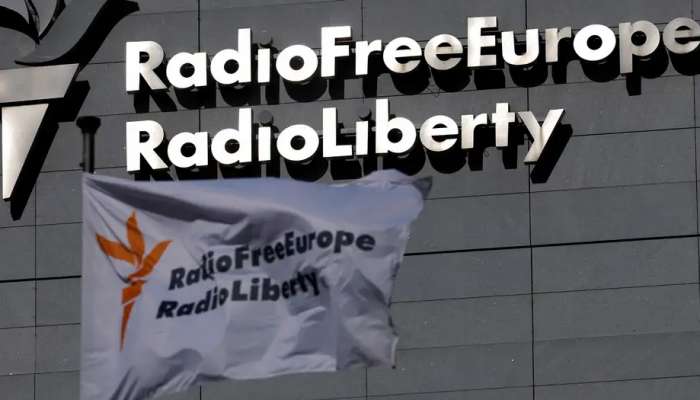
Brussels: The European Union is providing €;5.5 million ($6.2 million) to support Radio Free Europe/Radio Liberty (RFE/RL) after the broadcaster lost US public funding.
US President Donald Trump's administration suspended funding to the 75-year-old broadcaster in March, accusing it of promoting a news agenda with liberal bias.
But on Tuesday, EU Foreign Policy Chief Kaja Kallas said the bloc is releasing the emergency funding as a "safety net for independent journalism."
What did the EU say?
Kallas addressed the significance of Radio Free Europe in resisting authoritarian regimes. Founded during the Cold War, the broadcaster's aim was to deliver news to people under communist rule.
Kallas spoke about tuning in to Radio Free Europe during her childhood in Estonia, part of the former Soviet Union.
"Coming from the other side of the Iron Curtain, actually it was [from] the radio that we got a lot of information," she said. "So, it has been a beacon of democracy, very valuable in this regard."
What is the significance of the EU funding?
Kallas said the procured funds would not be able to support all of Radio Free Europe's 27 languages in 23 countries across Eastern Europe, Central Asia and the Middle East.
It will, however, focus on countries in regions such as Central Asia and the Caucasus.
"In a time of growing unfiltered content, independent journalism is more important than ever," Kallas told reporters after a meeting of EU foreign ministers in Brussels.
The EU funds would help the broadcaster "work and function in those countries that are in our neighborhood and that are very much dependent on news coming from outside."
Radio Free Europe's lawyers have challenged the decision to cut their funding in court.
A US District Court judge placed a temporary pause on Trump's order to terminate grants to multiple publicly-funded outlets including Radio Free Europe, but a federal appeals court blocked the ruling this month.